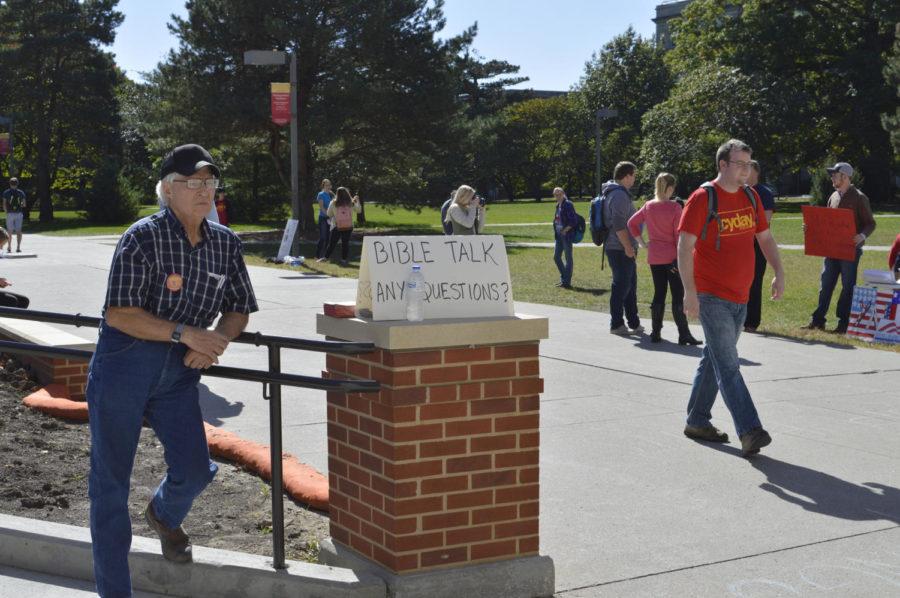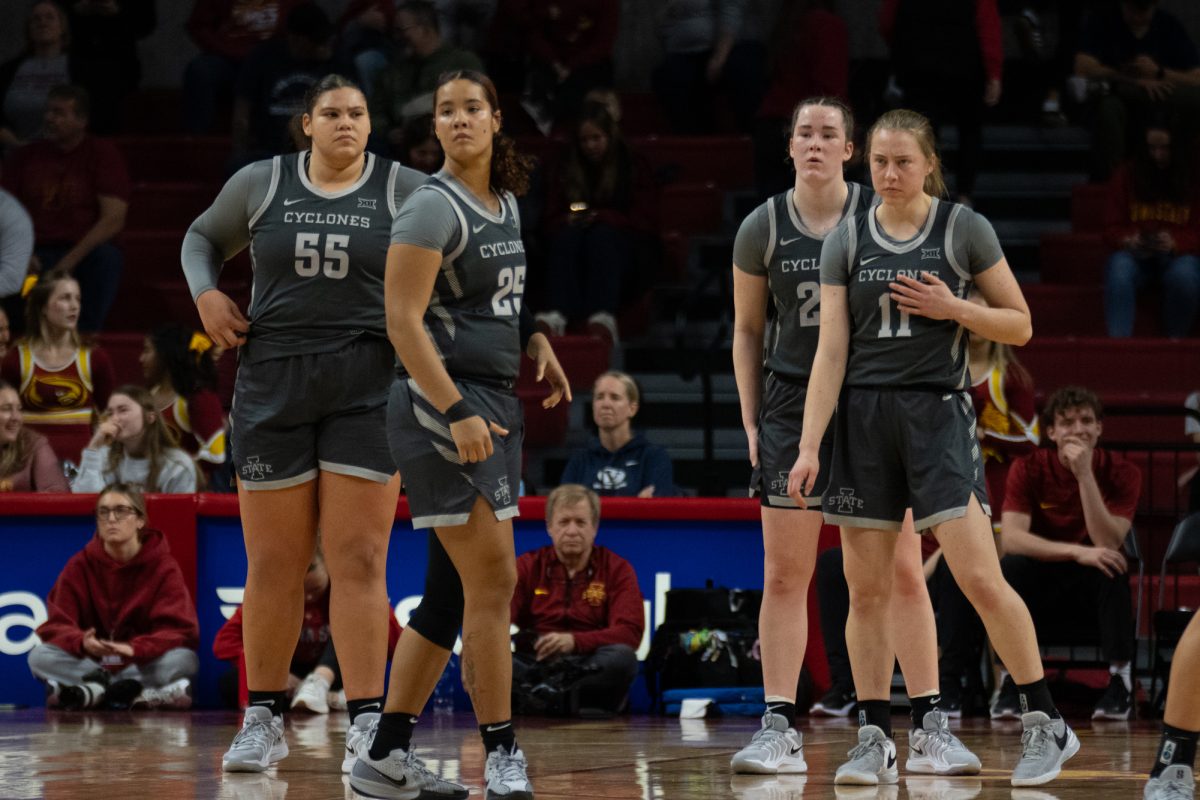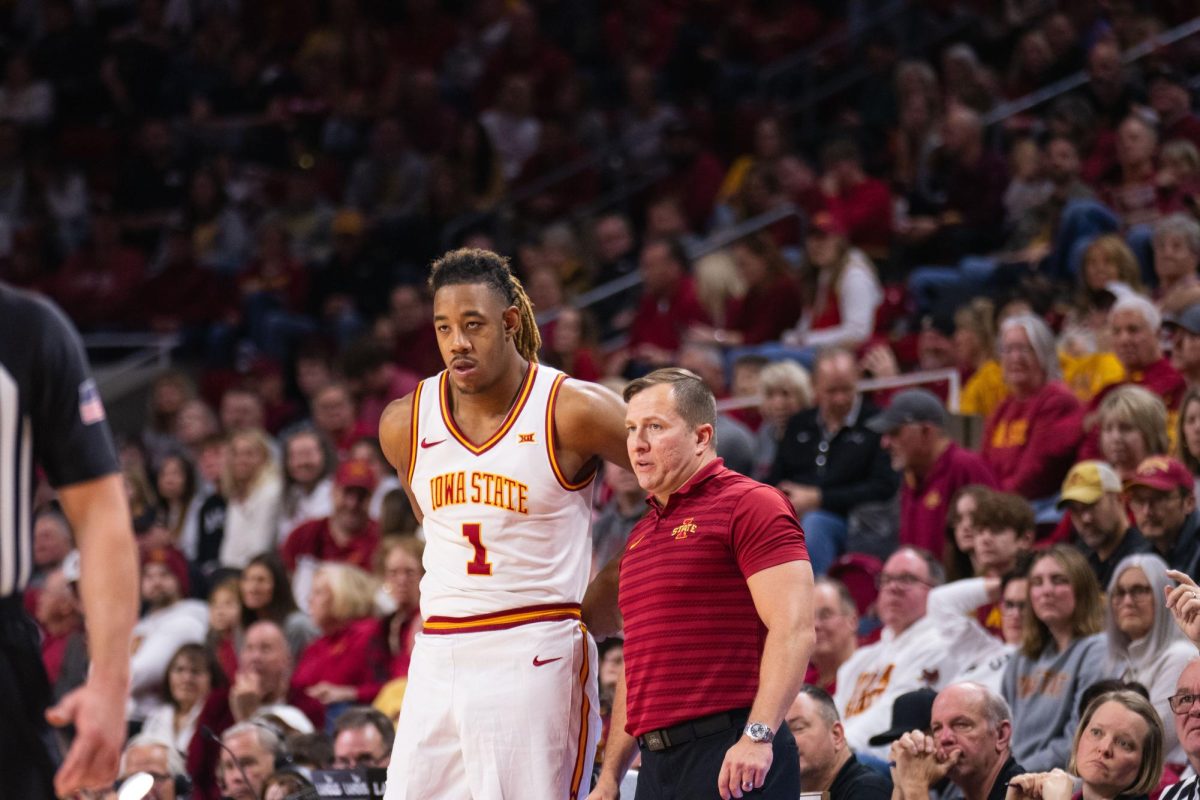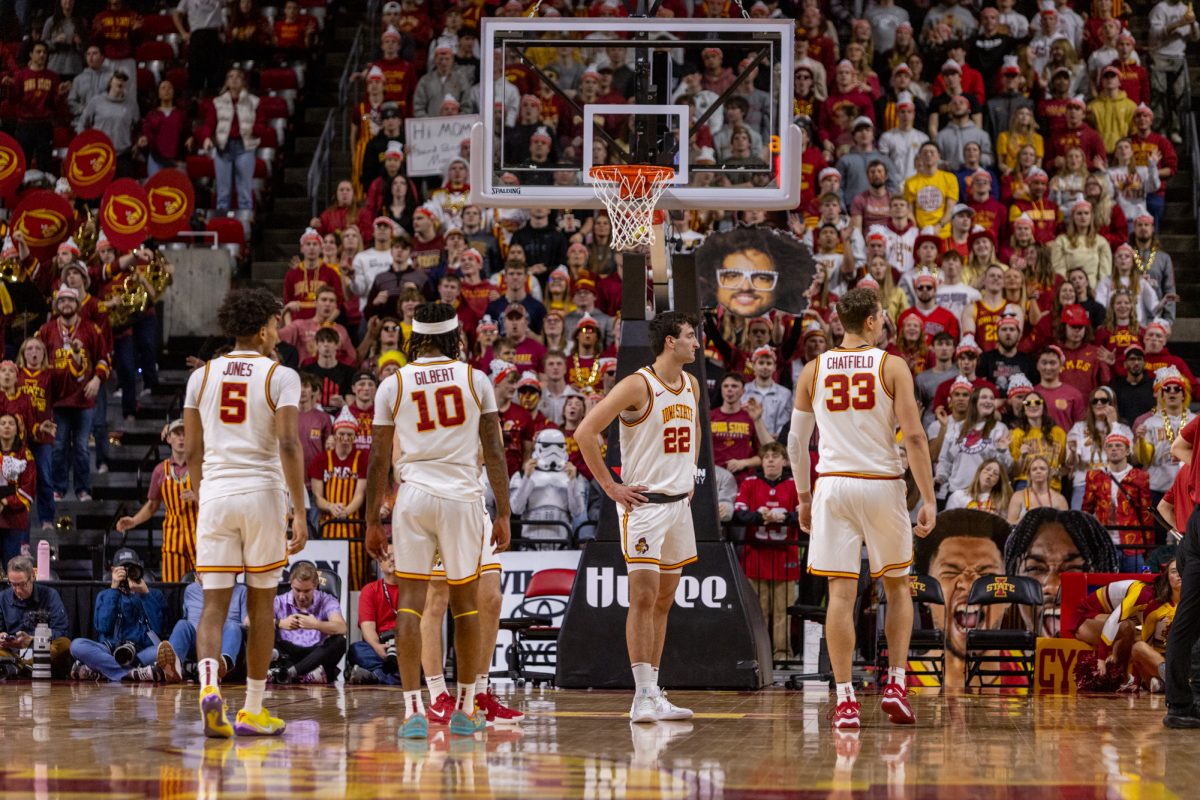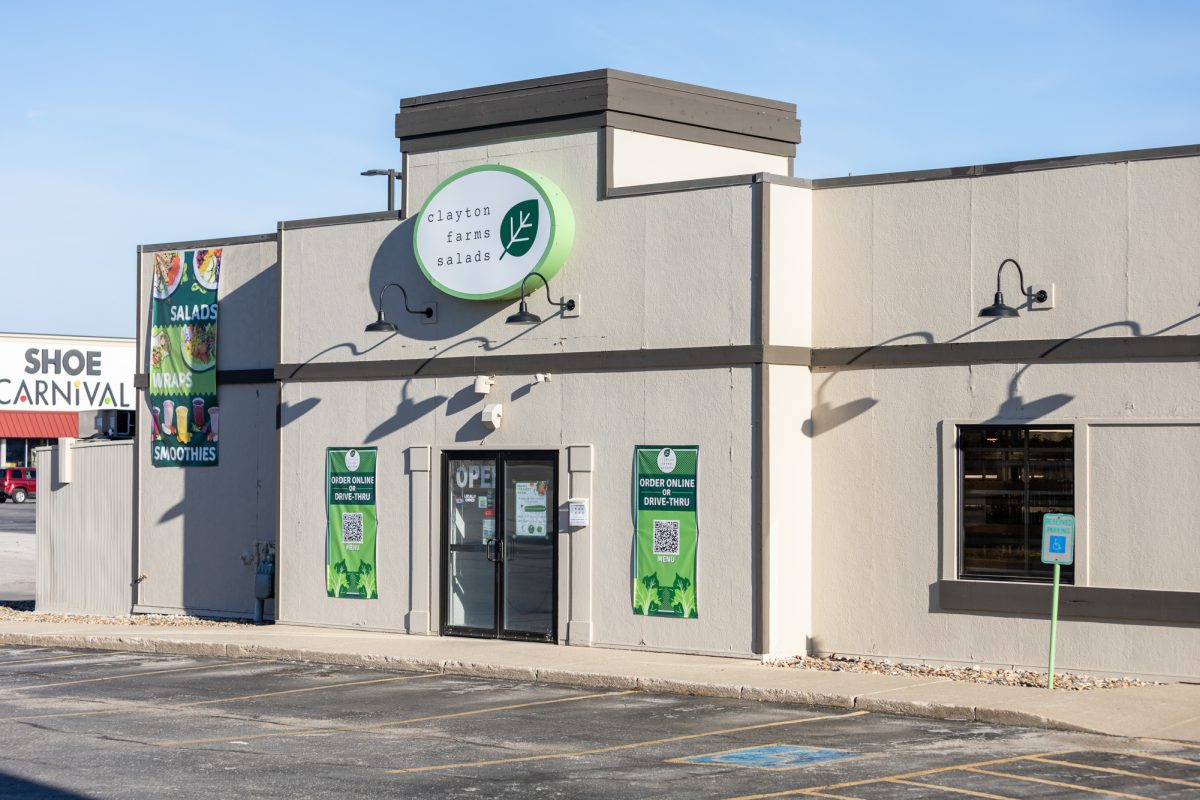ISU, faculty differ on areas that allow freedom of expression for all
Merlin Jones offers to answer questions about the bible to pedestrians on campus at the Agora on Oct. 9, 2016.
October 28, 2015
For some students, free speech on campus is full of more questions and myths than facts.
“If it’s causing big problems, can they be taken out?” said Laura Pesquera, freshman in biology.
Most students have heard of free-speech zones and the problems that have arisen this year in regards to those at Iowa State, specifically with religious preachers outside Parks Library and Shelby Mueller ripping a protester’s sign during the CyHawk tailgate.
The facts and regulations surrounding free speech though often aren’t clear. Part of this is because of terminology; not everyone agrees on what exactly a free-speech zone is.
According to the Foundation for Individual Rights in Education, free-speech zones have three basic characteristics: pre-registration, limited use and limited space.
“At Iowa State University, our policies do not create a free-speech zone,” said Keith Bystrom, associate counsel for the university.
Instead, Bystrom said the university has public forum areas, which are considered far less restrictive than free-speech zones.
According to Iowa State’s policy on facility and grounds use, public forum areas may be used on a first-come, first-serve basis as long as the area is not already reserved and the activity meets certain criteria.
This falls under what is commonly referred to as a time, place and manner restriction, which is legal in the United States. These restrictions include a limit of no more than 50 participants, all displays will be attended at all times and there cannot be any electronic or amplification equipment used beside handheld megaphones.
Others on campus believe these restrictions are too much.
“I’ve always called them censorship zones,” said Michael Bugeja, director of the Greenlee School of Journalism and Communication.
Bugeja said that as a journalist he has concerns regarding the restrictions on campus.
“Journalists embrace free speech because we take our roles very seriously,” he said. “Our roles are to foster debate to make intelligent choices in the voting booth.”
He believes the university’s restrictions can limit public expression and discussion. This leads to an uninformed or misinformed public, Bugeja said, which then affects the community through elections.
Bystrom argued otherwise, saying that the existing policy serves to prevent disruption of the learning environment rather than prohibit free speech.
“Our campus is pretty open,” Bystrom said.
While there are some regulations, he said that they exist not to prohibit free speech but to ensure a successful outcome for events and students.
Despite the disagreement among faculty and staff, many students appreciate the public area forums.
Chaise Zahrt, freshman in world languages and cultures, said she liked watching the presenters as they debate and argue among one other, and others appreciated the forums as a source of information.
“I think it’s nice to have it there, to have a selected place where everybody can go and get informed,” Pesquera said.


